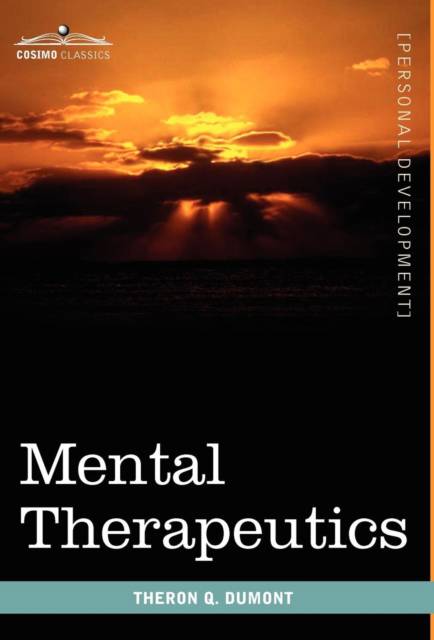
- Afhalen na 1 uur in een winkel met voorraad
- Gratis thuislevering in België vanaf € 30
- Ruim aanbod met 7 miljoen producten
- Afhalen na 1 uur in een winkel met voorraad
- Gratis thuislevering in België vanaf € 30
- Ruim aanbod met 7 miljoen producten
Zoeken
Omschrijving
Followers of the New Thought movement of the early 20th century vehemently believed in the concept of "mind over matter," none moreso than William Walker Atkinson. In 1918, writing under the name Theron Q. Dumont, Atkinson argued that the nerves and ganglia of the solar plexus form a separate, "instinctive mind" that energizes and regulates the body's organs and emotions. Mixing Eastern ideas with Western pragmatism, Atkinson provides a series of breathing and mental exercises that link the "thinking mind" with the "abdominal brain" to help both control emotions and improve physical wellbeing. With an emphasis on practice over theory, this slim, absorbing work seems right at home in an era of holistic and alternative medicines. THERON Q. DUMONT is an alias and pen name of American writer WILLIAM WALKER ATKINSON (1862-1932), editor of the popular magazine New Thought from 1901 to 1905, and editor of the journal Advanced Thought from 1916 to 1919. He authored dozens of New Thought books under numerous pseudonyms, including "Yogi," some of which are likely still unknown today.
Specificaties
Betrokkenen
- Auteur(s):
- Uitgeverij:
Inhoud
- Aantal bladzijden:
- 240
- Taal:
- Engels
Eigenschappen
- Productcode (EAN):
- 9781616403256
- Verschijningsdatum:
- 1/07/2010
- Uitvoering:
- Hardcover
- Formaat:
- Genaaid
- Afmetingen:
- 140 mm x 216 mm
- Gewicht:
- 439 g

Alleen bij Standaard Boekhandel
+ 78 punten op je klantenkaart van Standaard Boekhandel
Beoordelingen
We publiceren alleen reviews die voldoen aan de voorwaarden voor reviews. Bekijk onze voorwaarden voor reviews.











